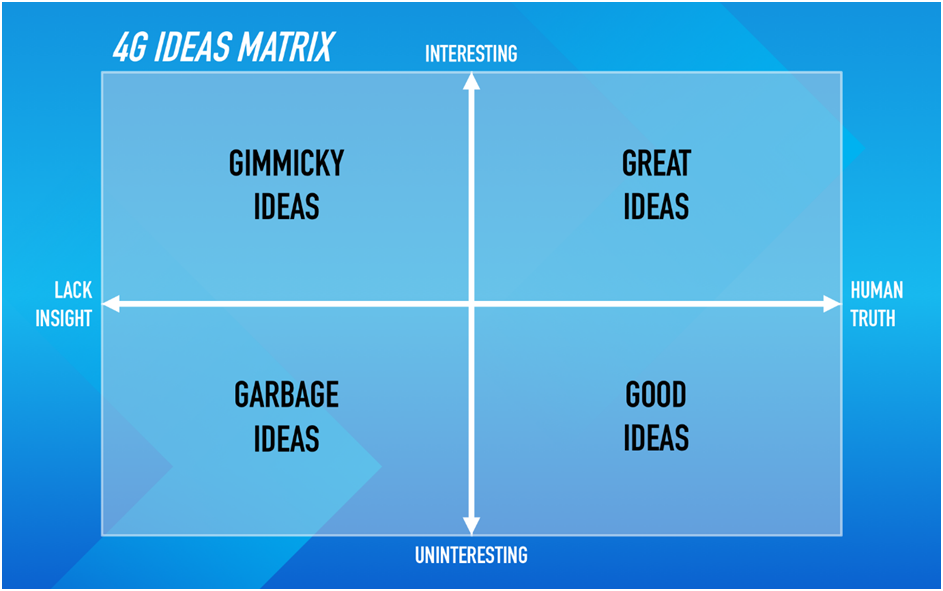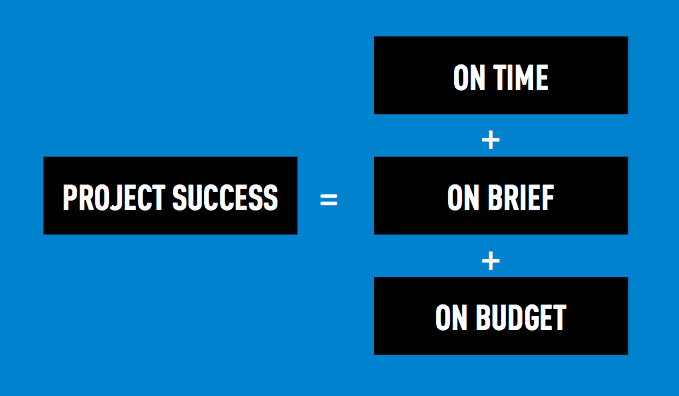In 2016, 43,101 entries were submitted at one of the most coveted advertising awards arena – the Cannes Lions 2016, and out of the submissions, which were an increase of seven per cent from the previous year, 1,888 actually won something. This figure represents just four per cent of the entries, an alarming figure indeed. But does this mean the remaining 96 per cent that were not recognised were bad ideas?
Today, in a world where brands are fighting for the attention of consumers, ideas are the ones that make or break businesses. The reality is that ideas are not hard to come by, but many die, making good ideas rare and great ideas even rarer.
In advertising, we constantly chase for good ideas that depart from the status quo, in order to help the brands we work for stand out, meaningfully. Ideas that are interesting and fresh, that have never been executed before. Ideas that are innovative and yet pulls at the heart strings of our audiences.
Despite this oft-stated hunger for creativity, how can we make sure our ideas are actually viable, especially when it is not fully sketched out in the initial stages? Is there a formula to derive good ideas? And is the term “there are no bad ideas†really true when we are brainstorming? There are many articles online sharing best practices on how best to conduct a brainstorm session, but this is not about brainstorming, rather, we need to know what to do with the ideas derived from brainstorms.
A good brainstorm session will get us loads of ideas, but the difficult part is separating the wheat from the chaff. I’ve been to numerous brainstorm sessions and have seen first-hand, the ugly side of people defending their ideas and egos being hurt in the process.
As advertising is notorious for its long hours, I’ve developed a simple yet efficient way to group ideas up and move forward quickly – in hopes that this process can benefit teams everywhere in our industry.
All we need to do is plot two simple axis. One on how interesting the idea is and another on how insightful the idea is.
How Interesting – When something has been done too many times, it’s no longer fresh and can get boring. From Drones, to Vending Machines, and the recent viral Mannequin Challenge, jumping on a trend 6 months later can get way too late. Fresh ideas capture our audiences’ imagination and they want to know more beyond the latest obsession and be entertained.
How Insightful – If an idea lacks insight, it will just be an idea that does not re-examine any existing conventions and thereby fail to deliver any value. As marketers, we always need to ensure that our ideas are founded on powerful human truth so that we will pull at the heartstrings of our audiences and hit their raw nerve.
So with these two axis, we get four quadrants where we can then start bucking our list of ideas.
Out of these two axis we get the 4G quadrants:
Garbage Ideas – Firstly, let’s be brutally honest and call out the garbage ideas. These are uninteresting ideas that most likely have been done to death or are simply outright boring. To make it worse, they are based off absolutely no insight. Toss them out right away.
Gimmicky Ideas – Sometimes an interesting technology comes along and provides new ways to powering our communication objectives. Radio, Television, Internet, Virtual Reality, Bots – the evolution continues. However, if like garbage ideas, they have no real insight, then it’s just purely a gimmicky idea. The temptation to be the first to execute something, or utilise new technology in a fresh way is very real, but usually they get a spike in attention and can’t contribute to long term brand value as people start to forget once the novelty wears off.
Good Ideas – Good ideas are based on powerful human truths, and will be relatable to our audience. They may not speak to everyone, but at least our intended audience will respond positively to it. Even if the idea is not ground-breaking or have been done before in other categories, it is still good business to have an idea that our audience relates to well.
Great Ideas – Now great ideas are what propels businesses and also win awards. These ideas are based on powerful insights and go the extra mile to communicate with audiences in a fresh, new, creative ways. Not only are they very relatable to our audience, they also intrigue those beyond our target audience and become a viral sensation.
So as a planner, being the consumer advocate, whether it is devising campaigns to encourage progressive behaviour, to drive behavioural change, or to champion a social cause, the age old principle of uncovering powerful insight while marrying creativity and technology is what I believe truly brings us great ideas.
Contributed article by Nick Pan originally published on Digital Marketing Asia.







